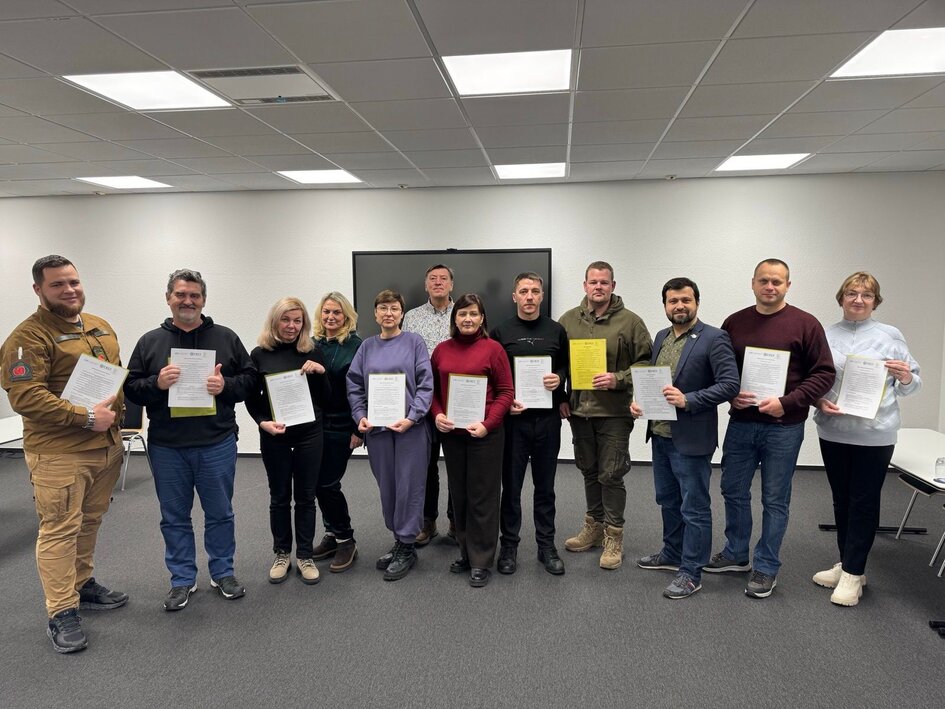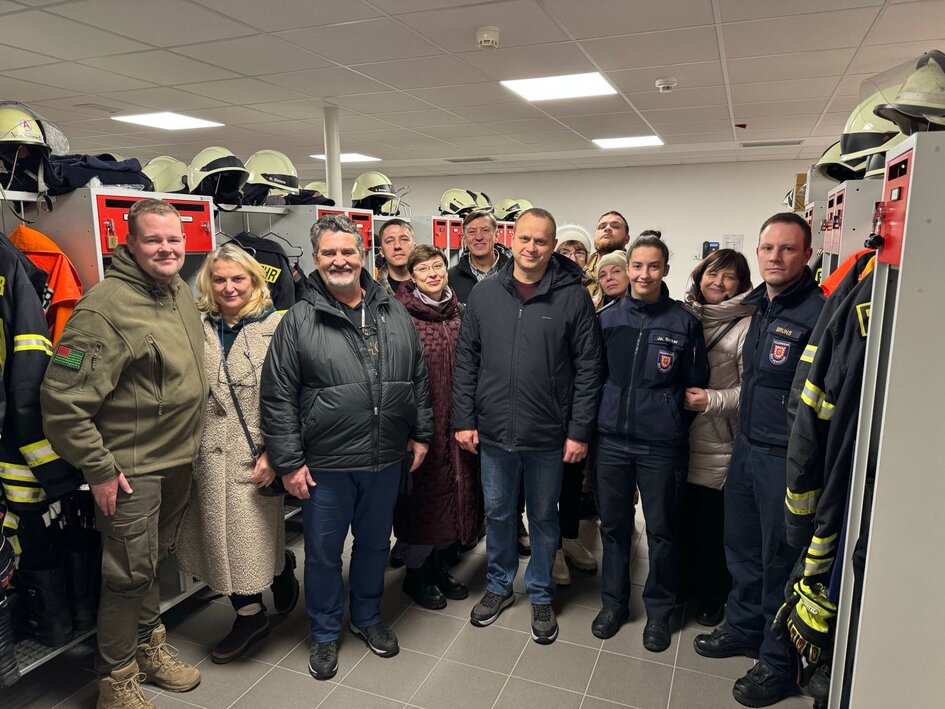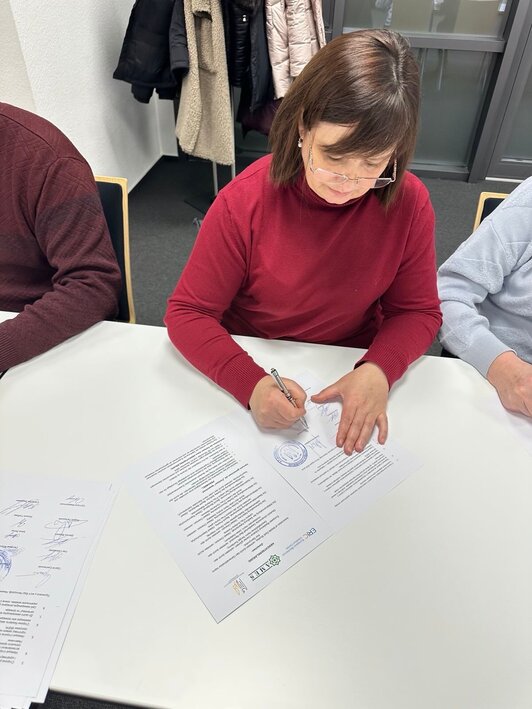Strengthening Resilience: German-Ukrainian Municipal Cooperation Program
The European Resilience Initiative Center (ERIC) has successfully concluded a series of meetings aimed at fostering cooperation and resilience between Ukrainian war-affected municipalities and German municipalities and NGOs. This program, funded by the German Foreign Ministry, comprised three key gatherings: two in Berlin and one in Bad Nenndorf. Besides the ERIC, the event was co-organized by a Ukrainian AMES NGO, a German-Ukrainian Society Bad Nenndorf, and a Ukrainian Kovel-based „My Help Ukraine“ NGO.
Ukrainian municipalities, heavily impacted by the ongoing war, gained valuable insights into the day-to-day operations of German municipalities. This included learning about administrative processes, educational frameworks, and waste management systems, such as those observed in Bad Nenndorf’s waste recycling facilities. A special attention was paid to Germany's system of emergency services, like fire fighters. Simultaneously, German municipalities learned from their Ukrainian counterparts about the critical importance of resilience: how communities can sustain systematic hostile attacks, maintain cohesion, and recover despite extreme stress, damages, and resource constraints. This mutual exchange underscored the importance of adaptability and cooperation in addressing shared challenges.
A key outcome of the program was the development of a policy paper, crafted to guide both Ukrainian and German municipalities seeking to initiate or deepen collaborative efforts. The policy recommendations emphasize practical strategies for cross-border partnerships, including humanitarian aid delivery, infrastructure support, and knowledge exchange.
The program’s activities have already yielded concrete results. The signing of the "Bad Nenndorf Declaration" between German and Ukrainian municipalities formalized commitments to strengthen partnerships. Additionally, humanitarian support initiatives, such as the delivery of emergency vehicles to Turijsk and regular aid transports to Kyiv, Odesa, and Kharkiv, highlight the tangible impacts of this collaboration. Observers from the Ukrainian Embassy were present throughout the project, reinforcing the importance of international and diplomatic engagement. Representatives of the German Engagement Global organization, focused on funding international cooperation projects, have shared their experience in supporting transborder projects of German and Ukrainian municipalities.
With plans to continue and expand the program in 2025, the European Resilience Initiative Center remains committed to fostering these critical partnerships. By bridging experiences and expertise between German and Ukrainian communities, ERIC and its partners aim to lay a solid foundation for resilience, recovery, and long-term integration of Ukraine into the European Union.
Did you like this article? Support us!


